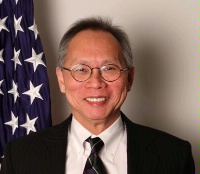
Headline writers have already called the meeting “Sunnylands II” and “Sunnylands 2.0.” But what Wang actually said left open the possibility of a more run-of-the-mill bilateral meeting.
Asked by a reporter whether the meeting would adopt the informal style of the June 7–8, 2013, meetings between the two presidents at the the Sunnylands estate in California, Wang did not provide a direct answer:
MR. WANG: Yeah, as I mentioned at the very beginning, after the leaders meeting is finished, the 10th and 11th, President Obama will stay behind in Beijing on the 12th, and so that’s where the bilateral meetings will be held between China and the United States. Some of the questions you’ve asked actually are probably best answered by the Chinese. We don’t know exactly what the Chinese have planned for the 12th in terms of how they want to do the bilateral at this stage, so I think that’s still in the process of discussion.
But obviously, I’ve heard a lot of comments about how effective it is to actually have smaller meetings where you can actually talk about issues in a more personal way, and I think knowing President Obama’s style and, of course, from the U.S. point of view, we did Sunnyland[s], and so we think that that’s an effective way of doing things. But – and of course, the Chinese seem to be receptive to that, but exactly what they have planned, we don’t really know at this stage whether it’ll be Beijing, whether it’ll be outside somewhere else. But that’s something I think that the Chinese are discussing with us, but not yet decided, I believe.
Media reports that the November 12 meeting will be “informal” and similar to Sunnylands hinge on the phrase in italics above, which strikes me as pretty weak. Also note that Wang says both “President Obama will stay behind in Beijing on the 12th, and so that’s where the bilateral meetings will be held,” and “we don’t really know at this stage whether it’ll be Beijing, whether it’ll be outside somewhere else.” The meetings will occur in Beijing, but we don’t really know whether it might be somewhere else.
In all likelihood, both governments would like to signal continuity with last June’s effort, which produced considerable optimism about the two governments’ ability to work on both areas of disagreement and common challenges. The U.S. and international media narrative on Obama in East Asia, however, took a hit when he skipped a trip to last year’s APEC summit to attend to the U.S. government shutdown. As I argued at the time, “what hurts the United States is not a few cancelled meetings, but dysfunction in the U.S. political system that distracts from long-term foreign policy goals.” If Obama followed-up with real personal attention despite the constant supply of international fires that need fighting, I argued, little would be lost.
Since Sunnylands, the sense that the U.S. government has been neglecting its East Asia policy and especially constructive relations with China has nonetheless been hard to escape. The Chinese government, of course, is not without blame. When Vice President Joe Biden traveled to China in December, it seemed his visit might continue the spirit of Sunnylands; but the Chinese government announced its East China Sea air defense identification zone (ADIZ), surprising the U.S. side and souring the atmosphere for Biden’s visit.
So will November’s Obama–Xi meeting be informal? Will the delegations shed their ties? Will they leave Beijing’s formal reception halls for a countryside retreat (in the south, if they want to stroll outside)? Or will the meeting take a different course? Despite today’s headlines, we’ll have to wait and see.

Leave a Reply